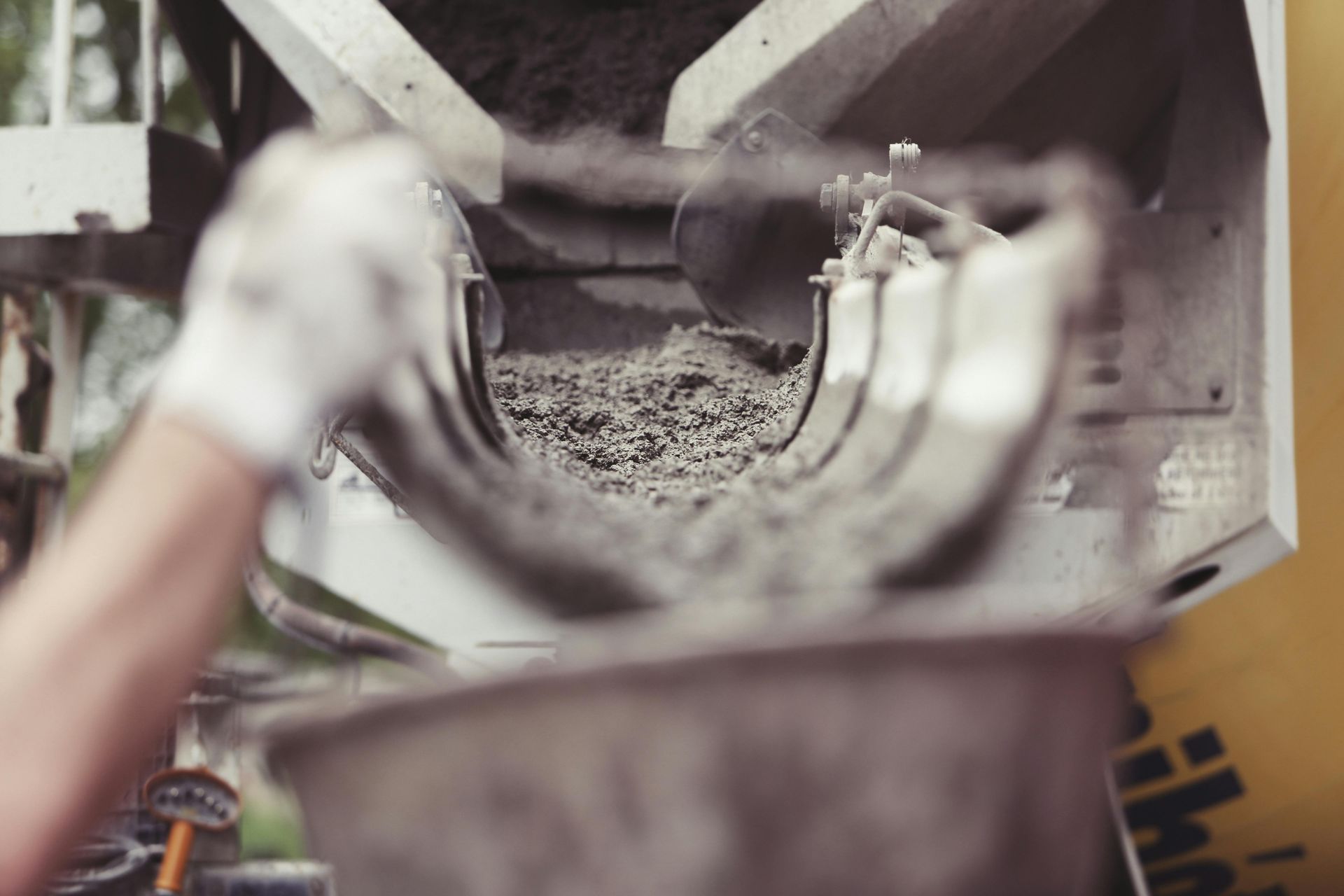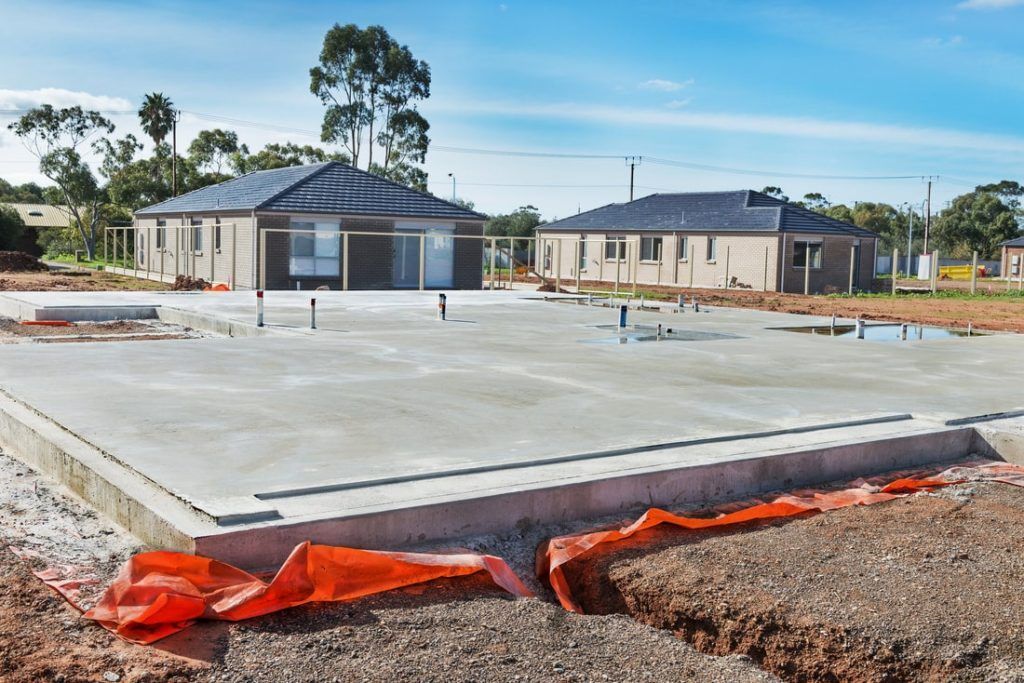
We will get back to you as soon as possible.
Please try again later.
Calgary Concrete Contractors
+1 587 855 9508
Concrete Foundations And Footings In Calgary Alberta
Building Your Concrete Foundations & Footings
A strong foundation is essential for the stability and longevity of any building. At Calgary Concrete Contractors, we specialize in creating strong concrete foundations that use steel fibre reinforced concrete that provide a strong base for your home or commercial property. Our expert team ensures that every foundation is designed and installed to meet the highest standards, accommodating your specific needs and soil conditions. Whether you're starting a new construction project or need to repair an existing foundation, our comprehensive services guarantee a durable and reliable foundation that supports your structure for years to come. Contact us today to learn more about how we can build a strong foundation for your next project.
A Comprehensive Guide to Types of Concrete Patios

A robust foundation is critical to the stability and longevity of any building. Foundation concrete forms the essential base that supports the entire structure, distributing loads evenly and providing resistance against soil movement and environmental factors. We believe steel fibre reinforced concrete is the best type of foundation supports to get the job done. Properly designed and installed foundation concrete ensures that your building remains structurally sound, reduces the risk of settling or shifting, and helps protect against issues like water infiltration and frost heave. At Calgary Concrete Contractors, we emphasize the importance of a strong concrete foundation to secure your investment and ensure the safety and durability of your property for years to come. Contact us today to discuss how our expert foundation solutions can support your next project.
Spread Footing
Also known as a pad or strip footing, this type involves a wide, flat base that spreads the load from the structure over a larger area. It is commonly used for shallow foundations and is suitable for most soil types.
Slab-on-Grade
This foundation consists of a single, thick concrete slab that is poured directly on the ground. It is often used in areas with warm climates and provides a solid base for the structure while minimizing the risk of moisture infiltration.
Crawl Space
This type includes a short, open space between the ground and the first floor of the building. Concrete walls or piers support the structure, creating a space that allows for ventilation and access to utilities.
Basement
A basement foundation involves creating an underground level beneath the main floor of the building. Concrete walls and floors are used to form the basement, providing additional living or storage space.
Pier and Beam
This foundation uses concrete piers or columns to support the structure above the ground, with beams connecting the piers. It is often used in areas with poor soil conditions or where a higher elevation is required to avoid flooding.
Retaining Wall
Designed to support vertical loads and resist soil pressure, retaining wall foundations are used to create level areas on sloped terrain or to prevent erosion.
Frost-Protected
This type is designed to prevent frost heave in colder climates by incorporating insulation around the foundation to maintain a consistent temperature and protect against ground freezing.
Piled
Used when the surface soil is too weak to support the load, this foundation involves driving concrete piles deep into the ground to reach more stable soil layers. It is often used for large or heavy structures.
Raft
Also known as a mat foundation, this type involves a thick, continuous slab of concrete that covers the entire area of the building. It is used for structures on weak or uneven soil, distributing the load evenly.
Floating
Designed to minimize the effects of soil settlement or movement, a floating foundation involves a thick concrete slab that "floats" on the soil, adjusting to minor shifts without causing structural damage.
At Calgary Concrete Contractors, we provide a comprehensive range of foundation and footing solutions tailored to your specific needs, from robust spread footings to resilient basement foundations. Each type is crafted with precision and durability to ensure the structural integrity of your building. Whether you're laying the groundwork for a new construction or reinforcing an existing structure, our expert team is dedicated to delivering top-quality results. Ready to build a solid foundation for your project? Contact us today to discuss your needs and get started on securing a reliable and enduring foundation.
Considerations When Choosing A Good Foundation

A well-maintained concrete foundation is crucial for the structural integrity and overall appearance of your home. However, factors like harsh weather, soil movement, poor drainage, and natural aging can compromise its strength and stability over time. As a homeowner in Calgary, Alberta, it's essential to address any foundation issues promptly to protect your home and ensure its longevity for years to come.
- Soil Quality: The type of soil on your property affects the foundation choice. Proper soil testing can reveal whether you need a shallow foundation (like spread footings) or a deep foundation (like piles) to ensure stability and prevent settlement.
- Load-Bearing Capacity: A foundation must support the weight of the structure and any additional loads (like equipment or vehicles). Calculating the load-bearing capacity of both the soil and the foundation is crucial for long-term stability.
- Climate Considerations: In colder climates, foundations need to account for frost heave, which can cause the ground to expand and contract with temperature changes. Frost-protected foundations or deeper footings may be required to prevent damage.
- Water Management: Proper drainage around the foundation is essential to prevent water accumulation, which can lead to erosion, mold, or structural damage. Waterproofing and drainage systems help manage moisture effectively.
- Foundation Type: Different types of foundations, such as slab-on-grade, crawl space, or basement foundations, offer various benefits. Choosing the right type depends on factors like the building’s purpose, budget, and local building codes.
- Settlement and Shifting: Foundations need to address potential settlement or shifting of the ground over time. Techniques such as using pilings or creating a raft foundation can mitigate these risks and maintain structural integrity.
- Construction Quality: The quality of the concrete mix, reinforcement, and construction techniques significantly impacts the foundation’s durability. High-quality materials and skilled craftsmanship are essential for a strong foundation.
- Building Codes and Regulations: Adhering to local building codes and regulations ensures that the foundation meets safety standards and is approved by relevant authorities. This helps avoid legal issues and ensures the foundation’s reliability.
- Future Expansion: Consideration for future expansion or changes to the building can influence foundation choice. A well-planned foundation can accommodate modifications without requiring extensive rework.
- Cost vs. Long-Term Value: While opting for a cheaper foundation might save money upfront, investing in a high-quality foundation can offer better long-term value by reducing the need for repairs and increasing the property’s overall stability and value.
- Environmental Impact: Sustainable foundation practices, such as using recycled materials or minimizing soil disruption, can reduce the environmental impact of your construction project.
- Professional Assessment: Consulting with a structural engineer or foundation specialist can provide valuable insights and ensure that the foundation design is appropriate for your specific site and building requirements. Contact Us today!
By considering these factors, you can make an informed decision and choose a foundation that best supports your building’s needs and ensures its durability and safety.
Why Choose Calgary Concrete Contractors?
- Locally Rooted Expertise
As locals of Calgary, we understand the region’s climate and soil conditions inside and out. Our tailored concrete solutions are built to last, designed with Alberta’s unique environment in mind.
- Specialized Concrete Solutions
We offer specialized services like decorative concrete, custom stamping, and eco-friendly options that go beyond the basics. Whatever your vision, our expert team brings it to life with precision and creativity.
- Commitment to Quality and Durability
Our commitment to quality means using only premium materials and proven techniques. We build concrete structures that are as tough as they are beautiful, ensuring they stand strong through Alberta’s challenging winters.
- Certified and Experienced Contractors
With certified and highly experienced concrete contractors on board, we bring a wealth of knowledge to every project. Our track record speaks for itself—quality work completed by professionals you can trust.
- Personalized Customer Service
We pride ourselves on offering a personalized experience, from free consultations to customized designs. We work closely with you to ensure your concrete project matches your exact vision.
- On-Time, On-Budget Projects
Deadlines and budgets matter to us as much as they do to you. We’re committed to delivering projects on time and within the agreed budget, with no surprises along the way.
- Innovative Techniques and Equipment
Using the latest techniques and top-tier equipment, we ensure your concrete projects are completed faster, with superior results that stand out from traditional methods.
- Clear Communication and Transparency
We believe in clear, upfront communication from start to finish. Our detailed quotes and ongoing updates mean you always know what to expect—no hidden fees, no guesswork.
- Comprehensive Service Range
From residential driveways to large commercial projects, we handle it all. Our comprehensive range of concrete services makes us your one-stop shop for any construction need.
Calgary, located in the heart of Alberta, is a dynamic city known for its vibrant culture, diverse communities, and stunning natural surroundings. It is divided into several unique areas, each with its own character and charm. Downtown Calgary is the bustling business hub, home to skyscrapers, shopping centers, and cultural attractions like the Calgary Tower. The northwest areas, including communities like Kensington and Brentwood, offer a mix of urban and suburban living with access to parks and the University of Calgary. The southwest is known for upscale neighborhoods like Mount Royal and Aspen, with scenic views and proximity to the Rocky Mountains. In the northeast, areas like Marlborough and Castleridge are known for their multicultural communities, while the southeast includes industrial zones and developing neighborhoods like Mahogany and Seton. With its blend of urban excitement and natural beauty, Calgary is a city that has something to offer everyone.
LET'S WORK TOGETHER!
Calgary Concrete Contractors is your go-to contractor for all your concrete needs. We provide exceptional workmanship, outstanding customer service, flexible and competitive pricing, and a wide range of services. We're committed to completing your project on time and to your satisfaction. Contact us today, and let's discuss how we can help you enhance the beauty and functionality of your property. We look forward to working with you!
QUICK LINKS
COMPANY INFO